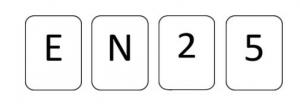Gifted Students: Children with Extraordinary Intelligence
What characteristics define the gifted girl or boy?
We can say, in general, that his intellectual development is always ahead of what is expected for his age. For example, if most children are always able to say a few words within a year and a half of having Born, a gifted child has a repertoire of words twice or three times as large by the time he reaches that band of age.
Gifted Students: What Factors Make a Child Highly Capable?
When the talented child begins school, basically what is noticeable is: quick thinking, ease of creating much more elaborate responses, and a very good use of information. These children may require adapted educational strategies, since it may be the case that they hide their talents in a normative class, get bored or drop out of classes. For this and many more questions we could ask ourselves the following: What guarantees does being part of the gifted students? Is a talented child a successful adult?
Not necessarily.
Contextual variables
It is necessary to take into account certain variables of the context that each child may have. On one side
support (or lack thereof) by their parents, legal guardians or close people. There are cases in which the family does not support them, devaluing the fact of studying and invest time in studies and emphasize the need for a salary at the end of the month to home. This can cause the child to put aside her talents and focus on fulfilling what their parents ask of them. The school can ignore talent, causing the child not to receive an adapted education and the child ending up getting bored and dropping out of classes. Or, the environment of friends may lead the child to hide her abilities through teasing, which could even trigger dynamics of Bullying.Economic circumstances in which the person is familiar also play an important role. There are families that cannot finance the studies of their children, since their economic situation does not allow it, no matter how much both parents work and there are certain aid or scholarships. Consequently, the child will have to adapt to the situation and her talent will not be able to develop as expected.
Finally, there are other variables to highlight such as the opportunities that life offers each one, or his own health.
Analyzing real cases
All of the above is reflected in a study carried out by Melita Oden together with Terman, in 1968, where she compared the 100 most successful men and 100 least successful men in a group; defining success as celebrating the jobs that required their intellectual gifts. The successful ones included professors, scientists, doctors, and lawyers. The unsuccessful included electronics, technicians, police, carpenters, and pool cleaners, as well as failed lawyers, doctors, and academics. The study concluded that the successful and the unsuccessful hardly differed in average IQ. In any case, the differences between them turned out to be in the confidence, persistence, and early encouragement of the parents.
Smart kids and parenting
When we talk about intelligent children, the main criterion focuses on the IQ and in academic settings, but also the factors socioemotional. In the study carried out by Terman and Melita, we can observe a clear bias in the sample since it is only a university population. Terman ended up becoming a convinced geneticist, but he did not take into account the historical variables of the moment such as war, etc. Many subjects died there, others from alcoholism, suicides... factors that have to do with socio-emotional characteristics.
Alencar and Fleith (2001) pointed out a less emphasis on emotional development due to the hegemony of educational plans little focused on strengthening a positive self-concept and promoting their social development. They also noted that the vast majority of papers presented up to that point on the subject were not related to socio-emotional development. Terman recognized, however, that children who had an IQ above 170 exhibited difficulties in social adjustment, being considered by their teachers as isolation (Burks, Jensen and Terman, (1930), Gross (2002)).
It has also been found a emotional vulnerability, in reference to the ability of these students to understand and engage with issues ethical Y philosophicalbefore emotional maturity has developed to deal with such issues (Hollingworth, 1942).
Gifted Students and School Expectations
As external agents we can observe how students with greater intellectual capacities are prone to suffer what Terrassier called the “Negative Pygmalion effect”. This occurs when, since there are gifted students who have greater potential than teachers, the latter tend to wait on their part young people perform in the average range, and then go on to encourage some students to perform well below their actual abilities (Terrassier, 1981).
As a last point, it is worth mentioning a study carried out on the gifted student detection, in which the structures of the implicit theories of educators' intelligence were analyzed and the relationship between them and the beliefs about identifying gifted students. Educators who rated creativity as an important attribute of intelligence tend to favor multiple methods for identifying gifted students.
In contrast, educators who supported the use of IQ tests as the primary basis for identifying talent generally agreed that the analysis capacity it was part of the intelligence structure (García-Cepero, et al, 2009).
Bibliographic references:
- Alencar, E.M.L.S. & Fleith, D.S. (2001). Giftedness: determinants, education and adjustment. São Paulo: UPR.
- Garcia-Cepero, M.C & McCoach, D. B (2009). Educators ’implicit theories of intelligence and beliefs about the identification of gifted students. Universitas Psychologica 8(2) 295-310.
- Terman. L. M., & Oden, M. H. (1959). Genetic studies of genius. Vol. V. The gifted at mid-life: Thirty-five years' follow-up of the superior child. Stanford, CA: Stanford University Press.
- Terrassier, J.C. (1981/2004). Les enfants surdoués ou la precocité embarrassante (6th ed.). Paris, ESF.

